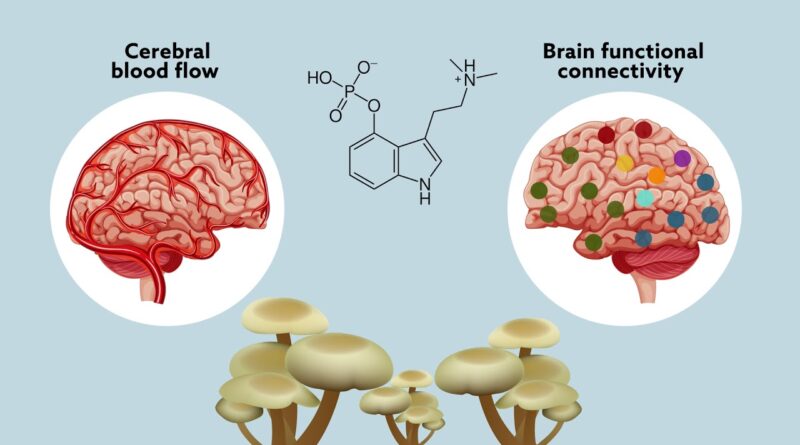Shroom Brain: Your Brain on Magic Mushrooms
[Please note that this page contains affiliate links. If you choose to purchase after clicking a link, I may receive a commission at no extra cost to you.]
The brain interprets magic mushrooms differently depending on the person.
Man has taken psychedelic or magic mushrooms since it all began. Today the psychedelic is used recreationally, and for spiritual guidance, it causes vivid hallucinations. So how do psychedelic mushrooms work precisely?
The Brain on Shrooms
The main psychoactive ingredient in magic mushrooms is called psilocybin. When it is ingested, the body breaks it down into the active drug psilocin, making its way to the brain.
Here, it begins to prevent the reuptake of the neurotransmitter serotonin increases its activity. On top of this, psilocin has a similar chemical structure to serotonin, meaning it can also bind to and stimulate receptors in the brain.
This amplified stimulation causes you to perceive and experience things without any real stimulus, called hallucinations. These can be different from auditory or mystical and insightful feelings.
The experience can be pretty enjoyable. However, some users report having unpleasant episodes or “bad trips.” These feelings typically last about three to eight hours but can feel much longer as the drug alters your sense of time.

Brain Science and Shrooms
Scientists have suggested that the brain may temporarily arrange itself by inhibiting normal brain activities and immediately creating new biologically stable brain connections. But unfortunately, this ultimately makes it harder to determine reality from fantasy and amplifies your intensity of thought, making planning and self-conscious thinking next to impossible.
There is also activation in the hippocampus and anterior cingulate cortex associated with dreaming. In addition, specific emotional regions of the brain are chemically activated, leading to a sense of expanding consciousness. And because the psychedelic temporarily alters the paths in your brain, thinking outside the box becomes exceptionally natural.
In a famous US study, 36 college-educated participants were given psilocybin and were observed in a laboratory. One-third of the participants reported the experience as the single most spiritually significant moment in their lives, with the remaining two-thirds putting it in their top five experiences.
The Brain Stats
Two months after taking the drug, 79% of the participants reported increased satisfaction and overall well-being. Friends and family were also interviewed with these claims. But it is not always so positive.
22% of the clinically tested individuals experienced fear and paranoia at specific points during their trip. Because of their brain’s state, these typically manifested as terrifying and uncontrollable hallucinations.
Although many are still unknown about shrooms, they are not considered clinically addictive and cause very little toxicity to organ systems. A UK study found that they cause minor damage to both the individual and others compared to other recreational drugs.
Finally, scientists think that the laws need to change around clinical testing of the drug so quicker and more advanced research can be done to fully understand the positives and negatives that this magic fungus has on our brain.

